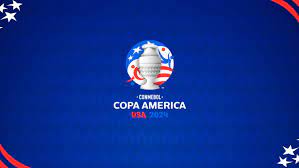June 20 – Much has been made of the Copa America in the US being a test event for the 2026 World Cup, but there has not been so much comment about the importance of the event for six Concacaf nations competing as they build their teams towards 2026.
This is the second time the Copa America has been hosted in the US, the first was the centennial edition of Conmebol competition in 2016.
The 2024 hosting comes out of a co-operation partnership signed between the two confederations that this year has been proved to be particularly inclusive.
In February Concacaf invited four Conmebol nations to compete in the inaugural 12-team W Gold Cup in the US. Now the North Americans are joining the South Americans or Conmebol’s blue riband men’s event.
Speaking ahead of the opening match between Canada and Argentina, Concacaf president Victor Montagliani said: “This partnership was born – not out of an ad-hoc agreement – but out of a strategy. After the 2016 Copa America (Centenario), we in Concacaf embarked on a football first strategy, ensuring that we would build our own capacities and competitions. And we did so, through our Gold Cup, through our Nations League and through our club competitions.
“It was important for us that we rebuilt our Confederation and over the past few years, in talking with President Alejandro Dominguez and the Conmebol team, we thought it was another opportunity to have this event in our Confederation and to come together.”
For Conmebol and the South American nations a clear motivation is the commercial benefit their own markets don’t provide. Atlanta last night was packed with Argentinian fans, most of whom are based in the US.
That commercial opportunity was not lost on the US and Mexico either who both organised friendlies against South American opposition pre-tournament. Those matches were somewhat craven cash grabs by those federations and for the non-sophisticated US soccer fans were promoted as though they were meaningful matches rather than damp squibs, in terms of intensity and performance, they turned out to be.
Whether they ultimately contributed towards the overall promotion of the Copa America is a separate debate but organisers would be forgiven for being miffed at the over-hyped promises of the ticket sales ahead of the real deal that kicked off last night.
Montagliani emphasises the importance of Copa America for his nations ahead of the 2026 World Cup from a performance perspective. Without the Concacaf agreement with Conmebol they would have had no meaningful competition ahead of 2026 – European nations are tied up in Euro 2024.
“It was also part of our strategy looking forward to the World Cup in 2026, to provide our teams with the opportunity to qualify for Copa America through our Nations League, and then to have six teams participating in it. It gives an opportunity for these teams to prepare not only for World Cup qualifiers but for the World Cup in 2026 itself,” said Montagliani.
“Every Confederation understands that official competitions are better for fans, better for players and better for the overall football product. So, this was important for us to do this, and we are very happy with the result, and we look forward to a great tournament.”
Contact the writer of this story at moc.l1744934883labto1744934883ofdlr1744934883owedi1744934883sni@n1744934883osloh1744934883cin.l1744934883uap1744934883

